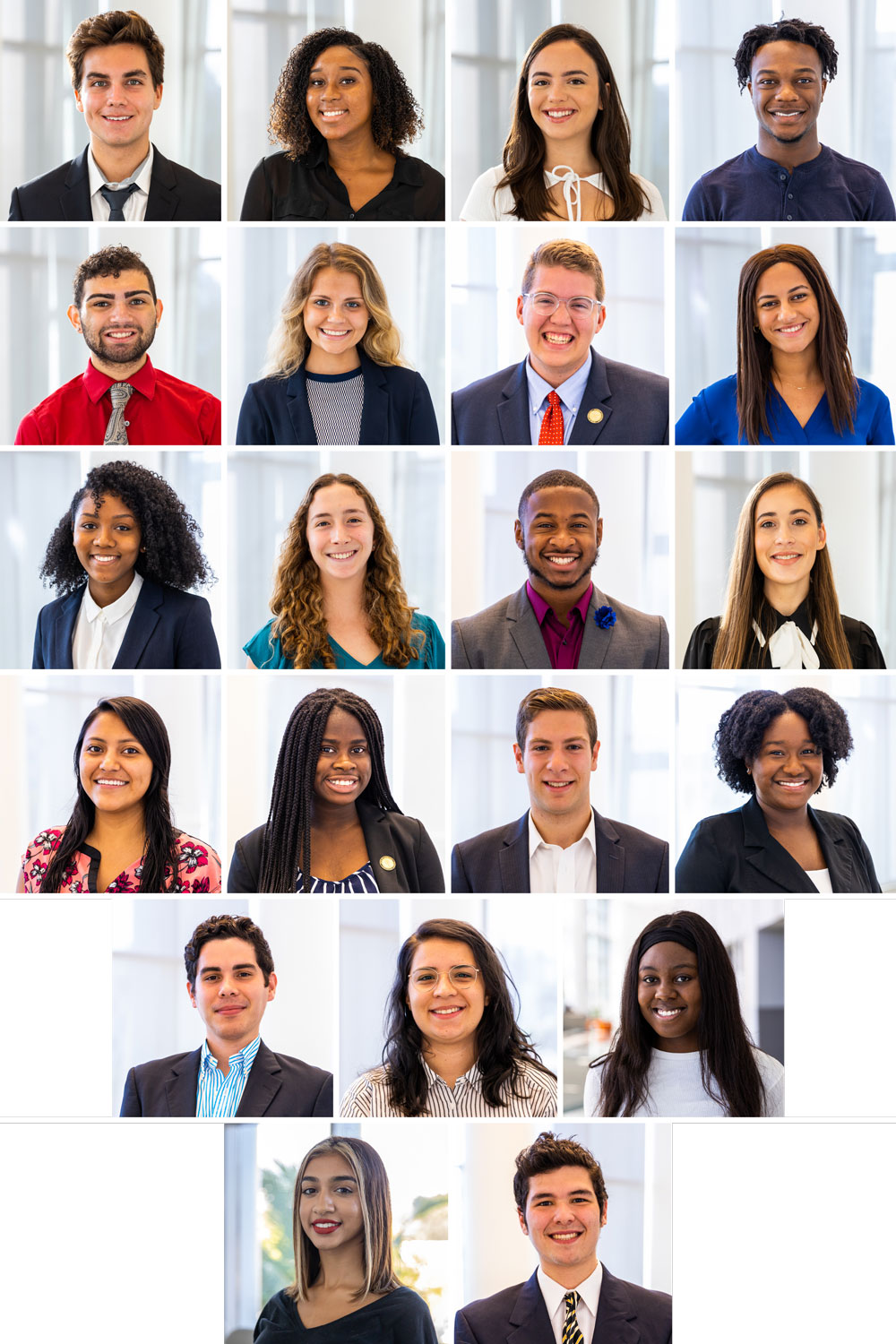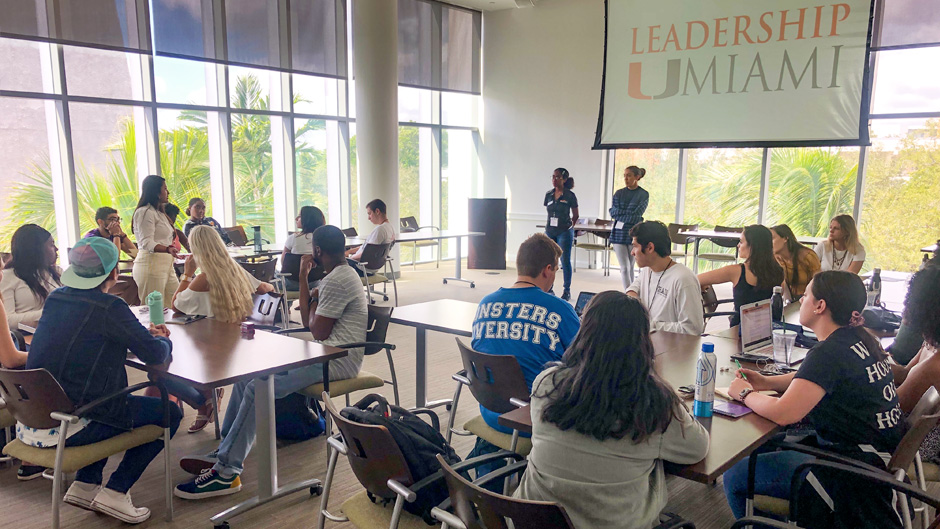Giovanni Sibilia, a junior at the University of Miami, was reluctant to share his thoughts about how he views himself. That changed when he decided to “break the ice” during a Leadership UMiami interactive exercise facilitated by the Butler Center for Service and Leadership staff and program advisors.
When asked which of 13 identity labels posted on a wall reminded him of daily life, Sibilia chose to stand by the “socioeconomic” poster.
“I’m from a lower middle-class town and I am constantly reminded of that when I see designer brands everywhere,” Sibilia, a resident of the New York hamlet Sauquoit Valley, said during the second meeting of the nine-week leadership-building program.
“After I said that, I found that it was much easier to open up. I felt that as long as one person showed vulnerability then it would be much easier for the rest of the group to,” he said.
He was right.
After Sibilia broke the ice, Patricia Herrera, a 20-year-old senior who obtained her associate’s degree in high school, was compelled to open up about constantly feeling inexperienced in most professional settings because of her age.
“I don’t let it hold me back, but there are some things that make me feel intimidated,” the political science and Spanish double major who works at University of Miami Max Orovitz Building said.
Now in its third year, Leadership UMiami has 24 students who were selected to hone the critical thinking skills that will help them evoke positive changes at the University of Miami and beyond.
During the two-hour meeting in the Shalala Student Center, students shared their individual experiences on a range of topics, including ethnicity, race, age, gender identity, sexual orientation, physical identity, biological sex, religious and spiritual belief, socioeconomic status, mental health, national origin, first language, and ability status.
The exercise was designed to create a brave space where diverse students can have supported conversations centered on mutual respect with others unlike themselves—something that Sibilia said he already sees happening among students in this year’s program.
“You can’t create change until you know yourself,” Sibilia said. “The biggest thing I was hoping to get out of this are the tools to affect positive change in the world.”
Sophomore Jasmine Ortiz said the exercise helped sensitized her to the struggles of others, triggering a desire to be a more proactive global citizen.
“For example, I recently saw a screening of ‘The Last Black Man in San Francisco’ at the Bill Cosford Cinema,” the professional music studies major said. “It was extremely eye opening, and reminded me specifically of the topics we discussed during our last session, and of my group's specific topic—social classism. I want to learn how to be more of an activist, and how to get involved with social causes in my own local community.”
Herrera, who wants to be a lawyer, believes that Leadership UMiami not only alleviated her fear of asking questions but may have led her to her vocation.
“I had no idea that there’s this thing in Florida called climate change gentrification,” Herrera said. “If I want to study law in Florida and become a politician here that’s something that I should know. It’s something that affects a lot of underrepresented minorities.”
“This second session is always a powerful experience for all of the participants,” Andrew Wiemer, director of the Butler Center said. “It is important that we each understand our own identities and the identities of others when discussing issues around democracy and social change. The vulnerability that was exhibited in the room truly showed how diverse our community is and the reasons behind our decision making for issues we care most about in the world.”
In the next session, the students will have the opportunity to speak to four community experts from different fields, including immigration and affordable housing.
At the conclusion of the second session, Leadership UMiami program advisors and Butler Center staff thanked the participants for their openness and encouraged them to continue researching the topics they had been assigned during inaugural meeting.
“I’m looking forward to the community leader panel this Friday and the knowledge and experiences they will provide to the students engaged in this work,” Wiemer said.
This is the second installment in a four-part series following Leadership UMiami's 2020 cohort.


